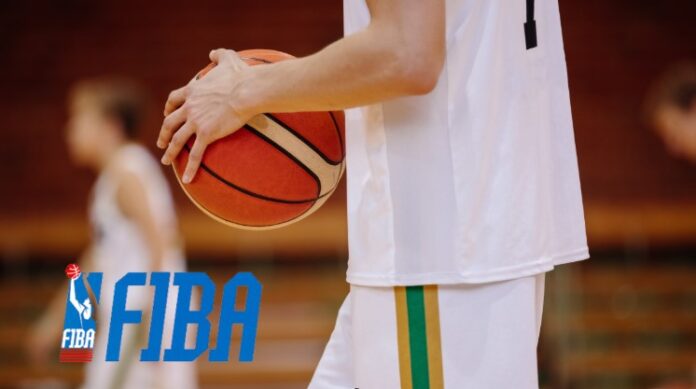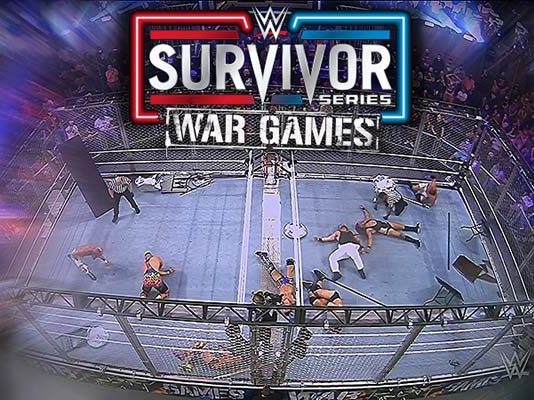
Introduction
The FIBA Basketball Champions League is one of the most prestigious club tournaments in Europe. 2025 will be a critical year for Turkish teams as it offers a great opportunity to demonstrate the success of the country’s basketball on the international stage and to secure a chance to advance to the EuroLeague.
In the ninth season of the FIBA Champions League, Turkish teams are preparing to make an impact in Europe, leveraging their past experiences. The planning by the Turkish Basketball Federation and infrastructure investments by clubs form the foundation for success in this tournament.
Turkish Basketball in Europe in Historical Context
| Period | Notable Achievements | Turkish Teams |
| 2000-2010 | EuroLeague finals | Efes Pilsen |
| 2010-2015 | FIBA European Cups | Beşiktaş, Galatasaray |
| 2016-2020 | EuroLeague championship | Fenerbahçe |
| 2021-2024 | FIBA Europe Cup championship | Bahçeşehir Koleji |
Turkish Teams and Their Past Performances:
- Tofaş: Played in the quarter-finals in the 2023-24 season, has a strong defensive system.
- Galatasaray Nef: A team that has previously reached the quarter-finals, has experienced players.
- Bahçeşehir Koleji: 2022 FIBA Europe Cup champion, possesses a dangerous outside shooting threat.
- Pınar Karşıyaka: Played in the final in 2021, known for its up-tempo offense.
Many Turkish basketball fans not only watch the tournament but closely follow it with statistics, predictions, and match analyses. This passion continues to grow each season, becoming the driving force behind Turkish basketball.
New Format and Changes
For the 2025 season, FIBA has made some important changes to the tournament format:
Format Innovations:
- 36 teams instead of 32 teams
- 6 groups with 6 teams structure
- System where the top 4 teams advance to the next round
- Addition of a play-in stage
- Expansion of video referee application
- Technological innovations enhancing the spectator experience
The Importance of the FIBA Basketball Champions League
The FIBA Basketball Champions League is one of the most important basketball tournaments in Europe after the EuroLeague and EuroCup. The tournament was established in 2016 and quickly took its place among Europe’s prestigious organizations. The performance of Turkish teams in this tournament has become a criterion that demonstrates not only the club level but also our national basketball level.
Considering the economic challenges that Turkish basketball clubs have faced in recent years, the FIBA Champions League gains importance with its financial returns as well. Broadcasting rights, sponsorships, and the prize pool make significant contributions to the teams’ budgets.
| Factor | Description | Impact Level |
| International Recognition | Teams finding opportunities to prove themselves on the European stage | High |
| Financial Returns | Increase in sponsorship and broadcasting revenues based on success | Medium-High |
| EuroLeague Gateway | Successful teams having a chance to advance to the EuroLeague level | Very High |
| Infrastructure Development | Young players gaining international experience | Medium |
| Brand Value | Increasing global awareness of clubs | High |
| Fan Support | Growth of fan base with international successes | Medium-High |
Turkish clubs have achieved significant successes in Europe in the past. Particularly after 2010, the successes of Anadolu Efes and Fenerbahçe in the EuroLeague have been a source of inspiration for our other clubs. Bahçeşehir Koleji, which won a championship in the FIBA Europe Cup, aims to utilize this experience in the Champions League as well.
Turkey’s Position in European Basketball
Connected with the national team’s performances in the FIBA World Cup, the successes of club teams are of great importance for the future of the country’s basketball. Turkey’s place in European basketball has shown significant development in the last 15 years.
Strengths of Turkish Basketball in Europe:
- Quality foreign player transfers
- Clubs with strong economic structures
- Modern basketball infrastructure facilities
- Experienced coaching staff
- Development of basketball culture
- Increase in young talents
- Tactical maturity and discipline
These factors enhance the competitive power of Turkish teams on European stages. Particularly in recent years, the emphasis on infrastructure investments and domestic player development stand out as steps that will strengthen the position of Turkish basketball in Europe in the long term.
Relationship with FIBA and Other Tournaments
The FIBA Champions League has an integrated structure with other European tournaments:
| Tournament | Relationship | Status of Turkish Teams | Organizer |
| EuroLeague | Upper level | Anadolu Efes, Fenerbahçe | EuroLeague Basketball |
| EuroCup | Middle level | Türk Telekom, Darüşşafaka | EuroLeague Basketball |
| FIBA Europe Cup | Lower level | Manisa, Merkezefendi | FIBA Europe |
| National League | Basic | BSL teams | TBF |
The Champions League creates an important showcase for teams outside the EuroLeague system. This tournament, organized by FIBA, aims to create an alternative power center in European basketball. Fenerbahçe Beko plays in high-level tournaments like the EuroLeague because it is Turkey’s best basketball team.
Economic Dimension and Sustainability
Success in the 2025 FIBA Champions League has not only a sporting dimension but an economic one as well. It is essential for Turkish clubs to strengthen their financial structures and establish a sustainable economic model for long-term success in the international arena.
Financial Sustainability Factors:
- Return on infrastructure investments
- Revenues from player sales
- Sponsorship revenues with increased brand value
- Revenue streams from digital platforms
- Fan products and licensed product sales
- Facility management and event organization
This economic model includes the fundamental elements that will enable Turkish clubs to be successful not only in sporting terms but also institutionally in international tournaments such as the FIBA Champions League. Economic stability is seen as the key to sporting success in the long term.
Turkish Teams in the 2025 FIBA Basketball Champions League
Turkish teams that will compete in the tournament in 2025 and their prominent features:
| Team | Strengths | Weaknesses | Recent European Performance |
| Tofaş | Defensive toughness, disciplined play | Inconsistency in offense | Quarter-final (2024) |
| Galatasaray Nef | Experienced roster, fan support | Defensive vulnerabilities | Last 16 (2023) |
| Bahçeşehir Koleji | Outside shooting threat, good offensive sets | Defensive imbalance | Champion (2022, Europe Cup) |
| Pınar Karşıyaka | Fast break, up-tempo play | Lack of deep roster | Final (2021) |
Strong European Competitors
The most serious rivals Turkish teams will face:
Top-Level European Rivals:
- Lenovo Tenerife (Spain): Past champion, experienced roster
- Unicaja Malaga (Spain): Strong team from the Spanish League
- Hapoel Jerusalem (Israel): Physical playing style
- AEK Athens (Greece): Defense-oriented, high fan support
- Rytas Vilnius (Lithuania): Technical basketball, high shooting percentage
- SIG Strasbourg (France): Disciplined play philosophy
Highlighted Matches
Highlighted games:
- Tofaş – Lenovo Tenerife: A match that will feature a defensive battle.
- Galatasaray – Hapoel Jerusalem: A critical matchup on the road to the quarter-finals.
- Pınar Karşıyaka – Unicaja Malaga: A clash between two teams with high offensive power.
- Bahçeşehir Koleji – AEK Athens: A duel between two teams with FIBA Europe Cup and Champions League experience.
- Tofaş – Rytas Vilnius: The most important appointment of the group stage.
Star Players to Watch in 2025
The most important players who will wear jerseys in the tournament:
| Player | Team | Position | Strengths | Career Achievements |
| Errick McCollum | Galatasaray | Point guard | Scorer, experienced | EuroCup champion |
| Tyrique Jones | Tofaş | Center | Rebound monster | G-League All-Star |
| Jamar Smith | Bahçeşehir Koleji | Shooting guard | Top-level three-point accuracy | FIBA Europe Cup MVP |
| Bonzie Colson | Pınar Karşıyaka | Small forward | Versatile player | NCAA All-American |
| Metecan Birsen | Galatasaray | Power forward | Versatile play | Turkey National Team |
| Tarik Biberovic | Tofaş | Shooting guard | Athletic build | Rising Star award |
These players will be decisive in their teams’ success and can change the course of matches. The performances of star players have the potential to make a difference for their teams at critical moments of each match.
Turkish Stars and Young Talents
Local players to follow from the FIBA group stage:
Profile of Turkish Players:
- Berkan Durmaz (Tofaş): Defensive specialist, effective rebounder
- Yiğit Arslan (Galatasaray): Creative playmaker
- Onuralp Bitim (Pınar Karşıyaka): Scoring wing
- Sertaç Şanlı (Bahçeşehir): Experienced center
- Can Korkmaz (Galatasaray): Future star candidate
- Egehan Arna (Tofaş): Effective shooter
Critical Matches and Tournament Calendar
Most important matches for Turkish teams:
| Date | Matchup | Stage |
| March 11, 2025 | Galatasaray – Unicaja | Group J |
| March 12, 2025 | Rytas – Manisa | Group J |
| March 11, 2025 | Aliağa Petkim – Manresa | Group K |
| March 18, 2025 | Galatasaray – Rytas | Group J |
| March 18, 2025 | Manisa – Rytas | Group J |
| March 19, 2025 | Aliağa Petkim – Tenerife | Group K |
| March 25, 2025 | Galatasaray – Manisa Basket | Elimination |
Tournament stages:
Tournament Timeline:
- Group Stage: October – December 2024
- Last 16 Round: January – March 2025
- Quarter Finals: April 2025
- Final Four: May 2025
Host Cities and Arena Information
Potential cities where the Final Four will take place and their features:
| City | Arena | Capacity | Previous FIBA Organizations |
| Istanbul | Sinan Erdem | 16,000 | 2017 Final Four |
| Athens | OAKA | 18,500 | 2020 Final Four |
| Berlin | Mercedes-Benz Arena | 14,500 | 2022 Final Four |
| Madrid | WiZink Center | 15,000 | 2019 Final Four |
| Belgrade | Stark Arena | 18,400 | 2023 Final Four |
Success Strategies for Turkish Teams
Turkish teams should apply these tactics to be successful:
Core Strategies:
- Defensive Strengthening: Keeping opponents at low scores provides a great advantage.
- Fast Breaks: It’s necessary to wear down opposing defenses with up-tempo play.
- Three-Point Percentage: Outside shooting threats like Bahçeşehir become important.
- Rebounding Advantage: Will be one of Tofaş’s strengths.
- Free Throw Accuracy: A factor that will determine the outcome in critical matches.
- Rotation Depth: Roster width is important in the long tournament process.
Tactically, Turkish clubs can better analyze opponents by examining past data and gain strategic advantages throughout the tournament.
Coach Profiles and Playing Styles
| Team | Coach | Game Philosophy | Characteristic |
| Aliağa Petkim | Mesut Toros | Set defense, controlled offense | Disciplined |
| Galatasaray | Yakup Sekizkök | Fast break, individual talents | Free-flowing |
| Manisa | Maksvytis Kazys | Tempo-increasing, three-point oriented | Aggressive |
Professionally Following the FIBA Champions League
Ways for basketball enthusiasts to follow the tournament more consciously:
| Strategy | Description | Importance Level |
| Statistical Analysis | Team form status, shooting percentages, and player data | Very High |
| Pre-Match Reviews | Roster status, injuries, and coach comments | High |
| Past Matches | How teams have played against each other | Medium |
| Scouting Reports | Teams’ tactical systems and key players | High |
| Conditioning Factors | Fatigue and injury risks in a busy match schedule | Medium |
Some platforms offer in-depth analyses, expert comments, and predictions about matches. Professional analysis platforms like Mostbet Turkey provide detailed statistics, player comparisons, and form graphs for FIBA Champions League matches, enabling basketball fans to follow the tournament more analytically.
Digital Platforms and Social Media Tracking
Modern Tracking Tools:
- Official FIBA app: Live scores and statistics
- Champions League social media accounts: Instant developments
- Club accounts: Inside information and exclusive interviews
- Basketball analysis sites: In-depth tactical analyses
- Fan forums: Community discussions and opinions
- Basketball podcasts: Expert comments and analyses
Predictions and Expert Opinions
Championship favorites:
Teams According to Championship Potential:
- Lenovo Tenerife: Stands out with past successes.
- Unicaja Malaga: One of the top contenders with its strong roster and consistent performance.
- Pınar Karşıyaka: Can surprise with a good roster structure.
- Galatasaray Nef: Competitive with experienced players and coaching quality.
- Hapoel Jerusalem: Drawing attention with its rise in recent years.
- AEK Athens: Strong team that can leverage home-court advantage.
Analyses and statistics play an important role in determining which team will stand out.
Expert Predictions and Statistical Projections
| Expert | Championship Prediction | Turkish Teams Expectation |
| Carlos Andres | Lenovo Tenerife | Galatasaray quarter-final |
| Mike Smith | Unicaja Malaga | Karşıyaka final four |
| Dimitris Gagas | AEK Athens | Bahçeşehir last 16 |
| Jan Vesely | Rytas Vilnius | Tofaş quarter-final |
| Giorgio Petrov | Hapoel Jerusalem | Turkish team in final |
Conclusion
The 2025 FIBA Basketball Champions League offers a great opportunity for Turkish teams. Success in this tournament will both strengthen their position in Europe and increase their chances of participating in larger organizations in the future.
The FIBA Champions League, as a very important step in the European basketball pyramid, gives Turkish teams an opportunity to showcase themselves. From the FIBA group stage to the final four, each match serves as a showcase for Turkish basketball.
Importance of the 2025 Season for Turkish Basketball:
- Establishment of international success culture
- Young players gaining European experience
- Strengthening of clubs’ economic models
- Increase in fan support
- Development of new generation basketball players
- Reinforcement of Turkey’s position in European basketball
For basketball enthusiasts, it is of great importance to closely follow the tournament, analyze the performances of teams, and not miss critical matches.












